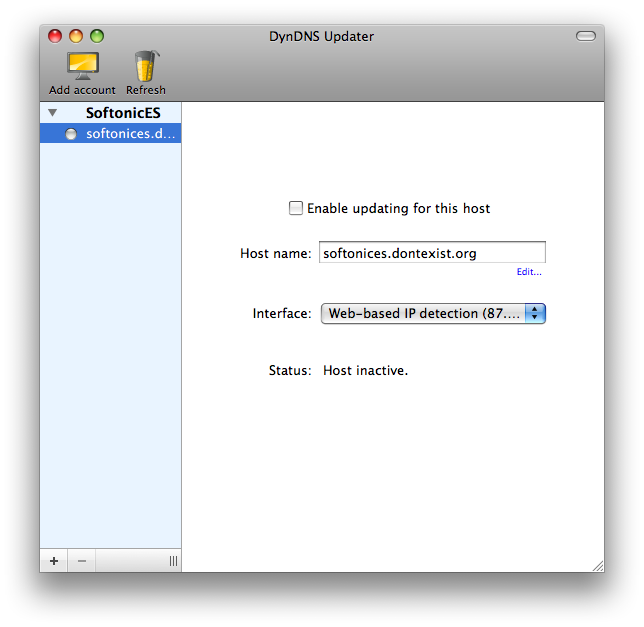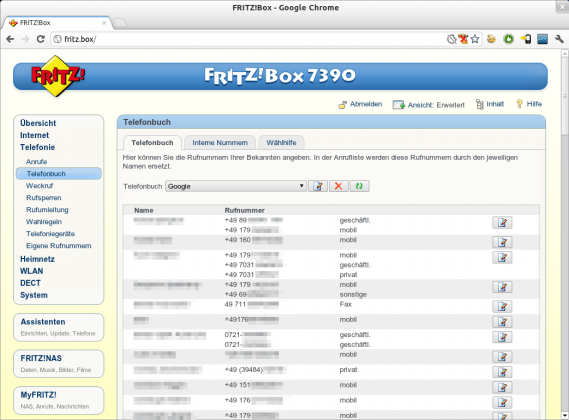

- #Dyn updater linux for free
- #Dyn updater linux full version
- #Dyn updater linux update
- #Dyn updater linux password
Rocon Software’s dynamic DNS client supports OpenDNS updates with version 4.3.4 and later. OpenDNS is supported as a built-in option from version 3.2 on.
#Dyn updater linux full version
There is a 60-minute trial version, and a full version for US$9.95. If you decide not to register you have to uninstall the program (from Control Panel > Add or Remove Programs icon.) Add the configuration file, aka the.
#Dyn updater linux for free
Should work on Windows 2000 and later.ĭynSite is a shareware, that is you can try it for free for 30 days then you have to register your copy to obtain a license code (also called a serial number) if you want to keep using it.
#Dyn updater linux update
The client is based on inadyn, but modified to support HTTPS (SSL) and preconfigured to use OpenDNS’s account update URL by default. Also supports DNS-O-Matic.ĬhangeIP’s Dynamic DNS update client supports OpenDNS updates with version 3.0.0.6 and later. Keep dynamic DNS hostnames and OpenDNS updated at the same time.Ī small updater program that helps keep your Dynamic IP information up to date on the OpenDNS website. This free service gives you an easy way to distribute your dynamic IP changes to multiple services with a single update. htaccess Apache Banana Pi Bash Scripting config.xml Snippets Cool stuff Debugging File opereations Filesystem Operations Filesystem Operations GIT Hardware Helper Home Automation Interesting stuff JavaScript Layout Linux Magento Microboards Module Development MySQL Network Stuff PHP PHP snippets Plesk Publications Python Raspberry Pi Raspbian Raspbian Setup script snippets SSH Statistics and information Subversion system.OpenDNS Updater is a small AppleScript application that helps keep your Dynamic IP information up to date on the OpenDNS website.

Or you just can change the configuration file /etc/nf. If you have misconfigured the ddclient, you get another try with: $> sudo dpkg-reconfigure ddclient

Reboot system (optional but recommended to test daemon startup):.This time the result should look different ( ddclient got the public IP instead of the local one): SUCCESS: updating : good: IP address set to 172.22.250.218 Change use=if, if=eth0 to use=web, web=/.It should look like this: # Configuration file for ddclient generated by debconf Open the ddclient configuration file /etc/nf:.Therefore you just have to continue this guide 😀 Thats why we have to tell ddclient to use an external service like to determine the public IP. The reason is, that my Pi isn’t connected directly to the internet but to a router that gets the IP. This gave me the following result (last line): SUCCESS: : skipped: IP address was already set to 192.168.177.6.Īs you can see the client sent the local IP address to my DynDNS service instead of my public IP I got from my ISP. $> sudo ddclient -daemon=0 -debug -verbose -noquiet 2 /etc/nf Set update delay (time between IP delivery in seconds):.Enable ddclient daemon (launch ddclient on every startup):.

Enter FQDNs (fully qualified domain names) under which your client should be accessible:.That’s why the local IP of my Pi was delivered to all-inkl’s DynDNS server. I had to change this setting afterwards because I’am behind a router. Select the interface to determine the IP address (eth0 in my case):.
#Dyn updater linux password


 0 kommentar(er)
0 kommentar(er)
